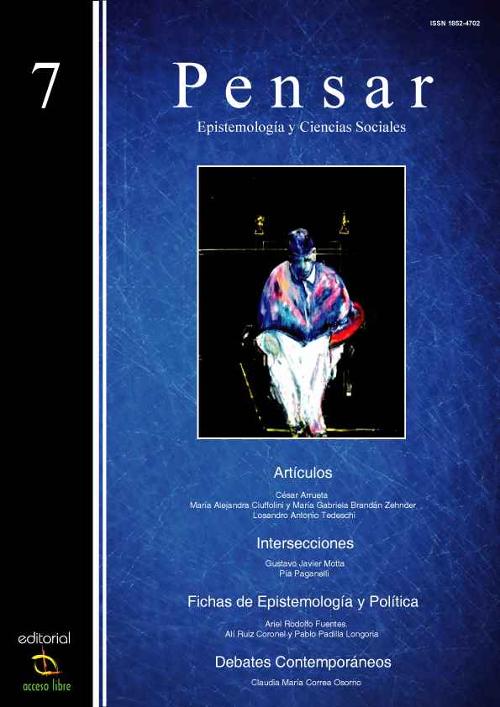Artículo
La institucionalización de las ciencias sociales a partir de los años cincuenta, permite que la Teoría Desarrollista penetre en diversos campos discursivos como el teológico. Hasta mediados del siglo XX, las encíclicas se encuentran permeadas por el lenguaje desarrollista característico de la Doctrina Social de la iglesia. Sin embargo, la emergencia de la Teoría de la Dependencia en América Latina permite un cambio de perspectiva centrado en la idea de Liberación que comenzará a hacerse presente en los documentos que irán conformando la Teología de la Liberación Latinoamericana. Por consiguiente, el presente estudio aborda las ideas generales planteadas tanto por la Teoría Desarrollista como por la Teoría de la Dependencia y, posteriormente, su repercusión en una serie de documentos eclesiásticos: La Populorum Progressio (1967), El Manifiesto de los Obispos del Tercer Mundo y la Segunda Conferencia del Episcopado Latinoamericano llevada a cabo en Medellín en 1968. Proponiendo como hipótesis central que es recién en la conferencia de Medellín en donde se hace patente una transición entre el lenguaje desarrollista y el de la dependencia-liberación. In the fifties, the institutionalization of social sciences allowed the penetration of the Development Theory in a great variety of disciplines, such as Theology. The “development language” characterizes the Catholic Church’s social doctrine, so the ecclesiastic documents of that period show an important influence of these ideas. Nevertheless, the arouse of the Dependence Theory in Latin America changed the perspective towards the idea of Liberation, which started appearing in the ecclesiastic documents that lead to the Liberation Theology. The present investigation tackles in the first place the main ideas and debates around the Development Theory and the Dependent Theory; and, in the second place, analyzes the impact of these theories in three ecclesiastic documents -The Populorum Progressio (1967), the Third World bishop’s Manifest and the Second Latin-American Episcopal Conference which took place in Medellín in 1968- in order to demonstrate that the Medellín Conference represents a transition between the development paradigm and the ideas of Dependence-liberation.
Desarrollo, dependencia y liberación: de la Populorum Progressio al documento de Medellín: El camino hacia la teología de la liberación
Fecha de publicación:
12/2012
Editorial:
Universidad Nacional de Rosario
Revista:
Pensar: Epistemología y Ciencias Sociales
ISSN:
1852-4702
e-ISSN:
1852-4702
Idioma:
Español
Tipo de recurso:
Artículo publicado
Clasificación temática:
Resumen
Archivos asociados
Licencia
Identificadores
Colecciones
Articulos(SEDE CENTRAL)
Articulos de SEDE CENTRAL
Articulos de SEDE CENTRAL
Citación
Paganelli, Pía; Desarrollo, dependencia y liberación: de la Populorum Progressio al documento de Medellín: El camino hacia la teología de la liberación; Universidad Nacional de Rosario; Pensar: Epistemología y Ciencias Sociales; 2012; 7; 12-2012; 77-102
Compartir




